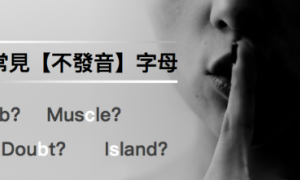Some parents may have a child, who snores "just like grandpa," has restless sleep, keeps waking up at night for no apparent reason, and when they try to wake the child up the next morning they waste time and energy doing so.
When confronted with such challenges, many parents may conclude their child does not suffer from a serious medical condition and might assume many other children do the same, and so they don’t give it another thought.
Nevertheless, Dr. David Gozal, M.D., the Herbert T. Abelson professor at the University of Chicago and one of the world foremost experts on childhood sleep disorders, warns that some children could suffer from apnea and if left untreated, they are at risk of a lifetime of bad behavior traits, lower concentration levels, increased hyperactivity, sub-optimal school performance, and other ailments that would negatively impact their lives.
Talking to experts
Dr. Gozal visited Beijing to deliver a presentation at the 6th annual Asian Pediatric Conference and spoke with CCTV.com Panview on Saturday.
He was joined by Xu Zhifei, chief physician of Beijing Children’s Hospital Sleep Center. They discussed their experiences of treating sleep apnea in children.
"about 20 years ago when I was at Tulane University in New Orleans, I was doing research about seemingly healthy infants dying in their sleep, sudden infant death syndrome," said Dr. Gozal. "but in my sleep clinics, parents kept coming because of their child snoring and restless sleep and would tell me how happy they were after treatment. So, I wanted to take a deeper look into it and began learning more deeply about sleep apnea."
Dr. Gozal then conducted a study by asking 1st Grade teachers in the local area to identify their two students of poorest performance and send them to him. He had 300 students tested during their sleep and discovered the failing students were nine times more likely to suffer from sleep apnea.
Treatment with positive results
Dr. Gozal set up a treatment program. He noticed that the students who had stopped snoring and whose sleep apnea was better could enjoy restorative sleep and began to improve both academically and behaviorally.
"The results were amazing," Dr. Gozal said. "And I wanted to make it my life's mission to conduct studies on sleep apnea and to bring this message out to the public."
He said when children are diagnosed with sleep apnea and treated, their learning and behavior problems can be "reversed." The sooner they are diagnosed and treated the better.
Studies indicate that 1-3 percent of all children struggle with severe sleep apnea cases, while another 10-12 percent have mild forms. Asian children are more likely to have sleep apnea, since their cranial and facial features make them more susceptible to it.
Search for cures
There are effective procedures to treat childhood sleep apnea. In milder forms, Dr. Gozal recommends the use of steroidal nasal sprays and oral anti-inflammatory medicines that are readily available, while at the same time his laboratory is working on new medications.
Dr. Gozal told CCTV.com Panview that in more serious cases: Surgery is "necessary." The children have enlarged adenoids and tonsils that are blocking their airways during sleep. When the surgery is not sufficient, then children are advised to wear a special mask attached to a positive airway pressure (PAP) machine to keep their airways open while asleep, but the devices are not convenient for sleeping children. In addition, his group and other groups around the world are working on other oral appliances that will replace the mask and PAP treatment.
Nonetheless, Dr. Xu, Beijing Children's Hospital chief physician, warns that she is meeting too many parents who look for a fast cure to their child’s sleep apnea and they rush them into surgery even without a proper diagnosis, potentially putting their children unnecessarily at risk.
Bringing innovation to treatment
A child going to surgery places faces a greater risk of harm than an adult would. Although Dr. Gozal noted his patients - children - who undergo surgery are treated with special care when they arrive at his sleep clinic in Chicago, he’s careful to make the right diagnosis beforehand.
His sleep lab conducts blood and urinary testing, as well as observing the patient in sleep. Mild forms of treatment, such as medicines and other specialized treatments are fist applied and if proven ineffective, they will move forward to surgery.
"But, it’s my dream that 20 years from now, we will make so many advances in treating sleep apnea that no child will need to undergo surgery," said Dr. Gozal.
He hopes new medicines and treatment programs will be introduced to the public as sleep study experts develop state-of-the-art cures for children.
He sought to express his gratitude to Dr. Xu and Beijing Children’s Hospital for pursuing innovative and collaborative research on sleep apnea in pediatrics.
Dr. Gozal is open to TCM (Traditional Chinese Medicine) doctors collaborating with his team of sleep experts as well, especially to treat mild cases of sleep apnea for children. He is sure that the wisdom of TCM may provide unique opportunities to discover future effective treatments for sleep apnea in children.
Public message for all
In the public discourse in China and the rest of the world, not many people are talking about sleep apnea in children. But Gozal and other sleep experts say it’s necessary to address the topic in public awareness campaigns.
"Some parents think that if their children snore like Grandpa that's no problem, but they're wrong," Dr. Gozal told CCTV.com Panview. "Snoring is an abnormal trait for children. They might have sleep apnea, which is affecting their ability to learn now and as adults, is putting them at risk for future diseases such as heart disease and diabetes when they become adults, and is reducing their quality of life. If treated we can make the child’s future so much better."
Dr. Gozal is correct that few families take sleep apnea seriously. Nonetheless, many people are not familiar with the ailment and it's time for people to take a closer look.







